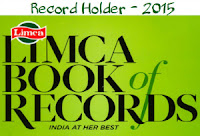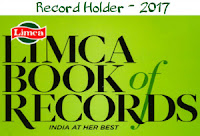Tendai Huchu’s first novel, The Hairdresser of Harare, was released in 2010 to critical acclaim, and has been translated into German, French and Italian. His short fiction and nonfiction have appeared in The Manchester Review, Ellery Queen’s Mystery Magazine, Interzone, Gutter, AfroSF, Wasafiri, Warscapes, The Africa Report, Kwani? and numerous other publications. In 2013 he received a Hawthornden Fellowship and a Sacatar Fellowship. He was shortlisted for the 2014 Caine Prize. His new novel is The Maestro, The Magistrate, & The Mathematician.
Website I Twitter I Goodreads
I cannot believe I did not have you over my blog sooner. Well, better late than never… So, how have you been doing?
Thanks for having me, Debdatta. I’ve been great, doing a bit of this and that, you know, trying to save the world one tale at a time.
Tell us, when did you first realize that you wanted to be a writer/ a storyteller?
I think it’s more a gradual process than anything. You tell a story, here and there, someone likes it and you think, ‘Great I can do something other people enjoy,’ because at the core of it, you’re really telling stories you yourself want to hear. Folks indulge you, and before you know it, you’re this 30-something year old dude, still making stuff up.
What inspires you to write?
Real life – to be fair, there’s a lot more crazier shit out there in the real world, than anything that can be conjured up in a book. But I enjoy literature as an art form, so other writers inspire me. The inspiration comes from just existing and checking stuff out.
What was the general response to ‘The Hairdresser of Harare’ and ‘An Untimely Love’?
Readers are very kind, especially to a writer still trying to find his feet.
How did you come up with the idea for your current story?
I don’t want to sound all mystical or hocus-pocussy, but it just came to me. Ideas are there, churning away in your subconscious, you just have to be a little patient and a little receptive to them.
What is your favorite scene in the book? Why?
The book works as an integrated whole for me. I couldn’t pick one scene over any other.
Did any of your characters inherit some of your own quirks?
Inevitably some of you filters into the work, unintentionally. But I suppose I can point to a character called Tendai, who has a very brief cameo in the book. He’s a bit awkward, drinks more than he really should, and generally makes an ass of himself.
Tell us about your writing process.
I wake up at 7am, have breakfast, then I work till 10:30. After that I run/cycle/walk for 1 ½ to 2 hours. I come back, have lunch. Depending on how the work is going I may write a bit more, or rewrite and revise. There’s a lot of flexibility in that structure allowing me to do important stuff like Twitter or Facebook or generally procrastinate and ruminate over my unappreciated genius and/or world peace.
What is your most interesting writing quirk?
I generally loath my work after it has been published. Each sentence feels like a step away from the perfect idea that was there on the blank first page. What keeps me going is the naïve hope that the next story might just be a little bit better.
Do you read? Who are your favourite authors and how have they influenced your writing style?
I read all the time. You can’t even contemplate being a writer if you don’t read – forget it.
Favourite authors – really hard coz I read so much, and am at the stage where I really don’t know what I get from whom. But if I had to pick:
Dostoevsky and Jim Thompson – insane psychological exposition.
David Mitchell – breadth of imagination and structural prowess
David Foster Wallace – need I say more
What is the best piece of advice you have received, as a writer, till date?
No one knows what they’re doing in this game, we’re all winging it.
What is the best piece of advice you would give to someone that wants to get into writing?
Don’t do it, get a real job instead. You’ll be a lot happier that way. However if you must – then read a lot first and learn from the masters. The best creative writing tutors are in your local library.
What would be the Dream Cast for you book if it was to be turned into a movie?
Idris Elba – The Magistrate
James Franco – The Maestro
Michael B. Jordan – The Mathematician
Chiwetel Ejiofor - Alfonso
If you were to be stranded on the famous deserted island, what three things would you carry?
Paper and pen and a cool sunhat.
How do you spend your free time? Do you have a favorite place to go and unwind?
I play a bit of chess, walk or cycle a lot, usually along Union Canal in Edinburgh.
Can you share with us something off your bucket list?
I wanna see the Lalibela churches in Ethiopia.
Tell us three fun facts about yourself.
I have restless leg syndrome, so my legs run about while I’m asleep.
Addicted to marshmallows, I can’t stop myself whenever I get a packet I keep going till it’s empty.
I’m afraid of the dark… really afraid.
What do you have in store next for your readers?
Working on a scifi novel. Doing more short fiction in the noir and literary genres. Varying it up a bit.
Is there anything else you’d like to share with your readers?
I’m sure they’ve had enough of me by now. Thanks a lot, Debdatta :)
Three very different men struggle with thoughts of belonging, loss, identity and love as they attempt to find a place for themselves in Britain. The Magistrate tries to create new memories and roots, fusing a wandering exploration of Edinburgh with music. The Maestro, a depressed, quixotic character, sinks out of the real world into the fantastic world of literature. The Mathematician, full of youth, follows a carefree, hedonistic lifestyle, until their three universes collide.
In this carefully crafted, multi-layered novel, Tendai Huchu, with his inimitable humour, reveals much about the Zimbabwe story as he draws the reader deep into the lives of the three main characters.
Read My Review of :




























No comments:
Post a Comment